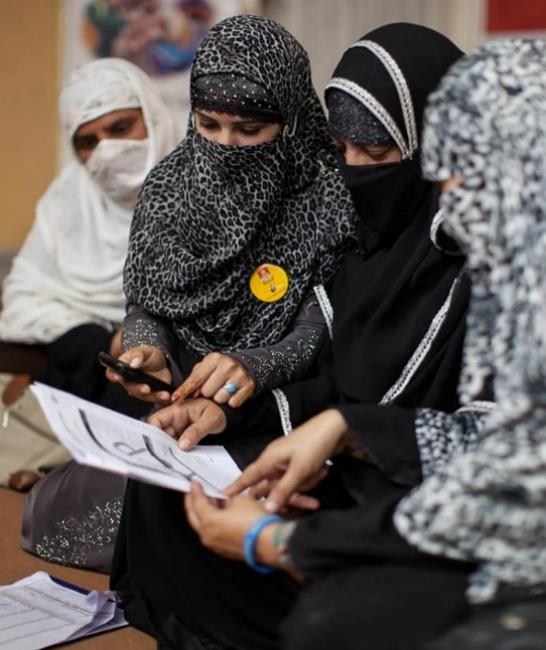
1 minute read
Berlin
Health workers can use the phones to send data via text message to a central server. If they see a potential polio case, they can immediately alert officials at Pakistan’s National Emergency Operations Center. They also can note any children who didn’t receive the vaccine or parental refusals – and record successful immunizations. In Pakistan, the polio eradication effort aims to reach the nation’s 35 million children under age five.
The result is a collection of real-time information that officials can easily monitor and assess, says Michel Thieren, regional emergency director of the World Health Organization’s Health Emergency Program.
Advertisement
Pakistan health workers are replacing traditional paper-reporting with accurate and timely cellphone-based reporting.
“Cellphone technology signals tremendous progress in the polio eradication program,” says Thieren, who has directed polio-related initiatives for WHO in Pakistan. “The data we collect needs to have such a granular level of detail. With real-time information that can be recorded and transcribed immediately, you can increase accuracy and validity.
At right, Health workers in Pakistan are receiving cellphone and e-monitoring training at the Rotary Resource Center in Nowshera, Khyber Pakhtunkhwa.
Click here for a very short video showing cell phone e-monitoring.
“This gives governments and polio eradication leaders an advantage in the decisions we need to make operationally and tactically to eliminate polio,” Thieren says.
Click here to read more.

BERLIN, GERMANY
In Berlin, 100,000 refugees have overtaxed the health-care system, jeopardizing the lives and well-being of refugees and German citizens alike.
Rotarian Dr. Pia Skarabis-Querfeld has assembled medical professionals from her community to assist. The members of the volunteer teams are highly motivated to serve vulnerable people and to work together to help their community.
Click here to view a short video telling this remarkable story.










